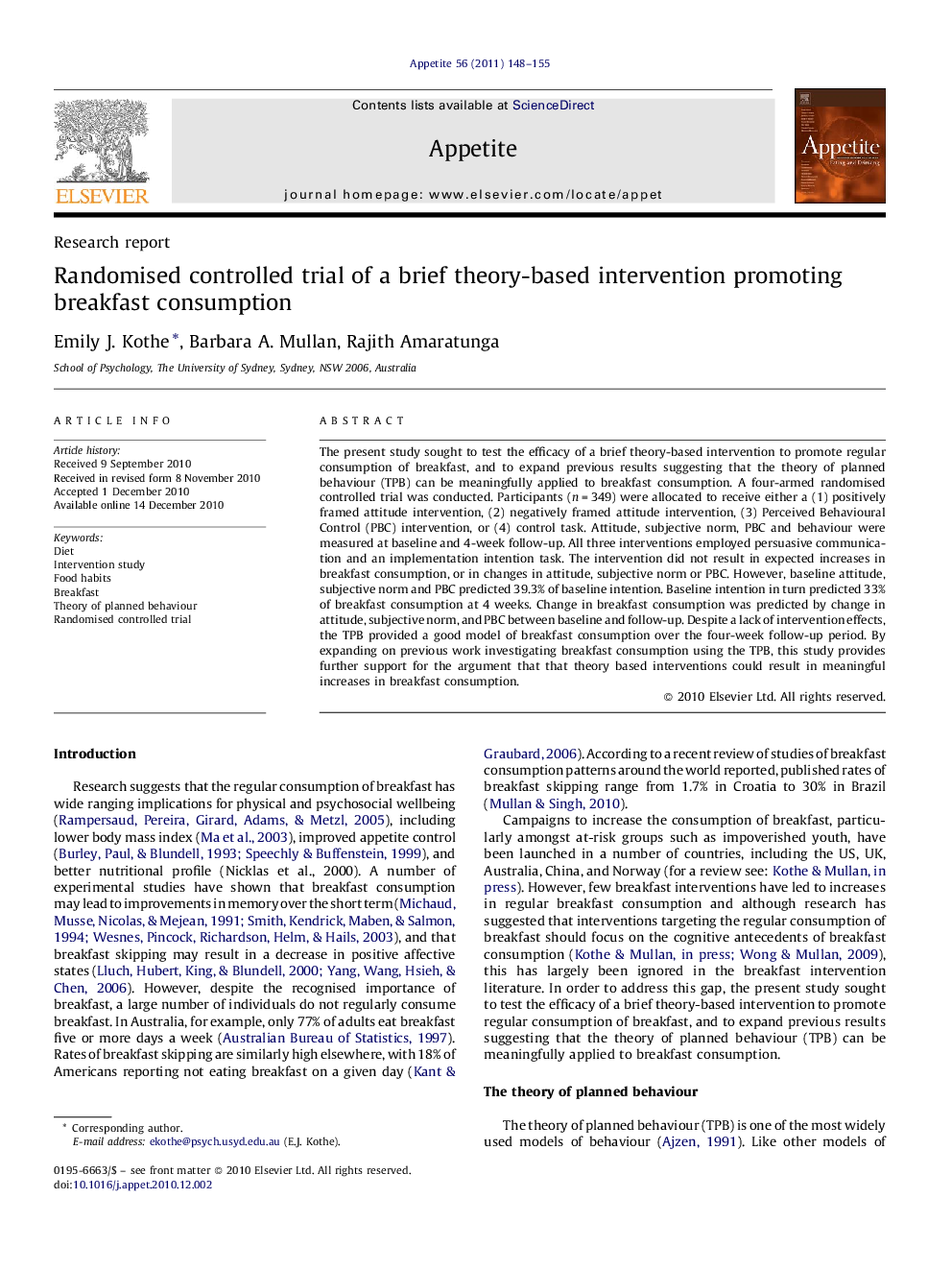| Article ID | Journal | Published Year | Pages | File Type |
|---|---|---|---|---|
| 10462598 | Appetite | 2011 | 8 Pages |
Abstract
The present study sought to test the efficacy of a brief theory-based intervention to promote regular consumption of breakfast, and to expand previous results suggesting that the theory of planned behaviour (TPB) can be meaningfully applied to breakfast consumption. A four-armed randomised controlled trial was conducted. Participants (n = 349) were allocated to receive either a (1) positively framed attitude intervention, (2) negatively framed attitude intervention, (3) Perceived Behavioural Control (PBC) intervention, or (4) control task. Attitude, subjective norm, PBC and behaviour were measured at baseline and 4-week follow-up. All three interventions employed persuasive communication and an implementation intention task. The intervention did not result in expected increases in breakfast consumption, or in changes in attitude, subjective norm or PBC. However, baseline attitude, subjective norm and PBC predicted 39.3% of baseline intention. Baseline intention in turn predicted 33% of breakfast consumption at 4 weeks. Change in breakfast consumption was predicted by change in attitude, subjective norm, and PBC between baseline and follow-up. Despite a lack of intervention effects, the TPB provided a good model of breakfast consumption over the four-week follow-up period. By expanding on previous work investigating breakfast consumption using the TPB, this study provides further support for the argument that that theory based interventions could result in meaningful increases in breakfast consumption.
Keywords
Related Topics
Life Sciences
Agricultural and Biological Sciences
Food Science
Authors
Emily J. Kothe, Barbara A. Mullan, Rajith Amaratunga,
